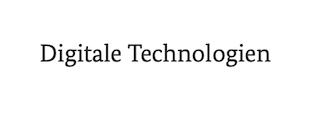de:karb
Platform for verifying and reducing CO2 emissions across the entire value chain in the steel production and processing industry
Amid the energy transition, German industry is facing increasing scrutiny due to the significant role it plays in generating greenhouse gas emissions. The steel production and processing industry is particularly important, as it is not only a source of emissions but also a key sector with considerable potential for savings. With 48 million tonnes of CO2 emissions, the steel industry alone represents more than 25 percent of the total CO2 emissions from German industry. The challenging structure of value chains in this industry, characterised by fragmentation and decoupling, increases complexity. However, given the large number of employees in the steel-intensive sector and its key role as a supplier to the automotive, mechanical, plant engineering and construction industries, there is tremendous social pressure to reduce emissions.
The de:karb project is now pursuing CO2 transparency across the entire value chain in the sheet metal production and processing industry, which will make it possible to precisely determine the carbon footprint of individual components and support the EU’s policy targets for CO2 reduction. The overarching objective is to create a freely accessible online platform that businesses can use to accurately determine the carbon footprint of their components. Integrating the relevant value creation partners helps improve previously unoptimised interfaces, which in turn leads to greater energy and resource efficiency. For example, de:karb wants to enable machine tools to determine electricity consumption, visualise the CO2 impact of mains electricity, develop a communication platform for all parties involved and come up with approaches for balancing carbon emissions on manufactured components.
The result is a transparent carbon footprint that enables manufacturing companies to reduce emissions and streamline the entire value chain. Thanks to its focus on data protection and data security, the de:karb approach minimises the effort required to integrate existing production systems into the platform. Close collaboration with partners throughout different stages of value creation and custom-tailored solutions to customer requirements ensure the project remains centred around actual demand and increases overall industrial sustainability. Validated by customer interviews from the steel processing industry, de:karb addresses clearly identifiable challenges and requirements within the sector.
The steel industry plays a decisive role in the ecological transformation of the economy. It bears responsibility not only for lowering its own carbon footprint but also serving as a role model and pioneer for other sectors. The de:karb project is a prime example of how digital technologies, data-based approaches and cross-sector collaboration can help address the challenges of climate change and shape a more sustainable future.
Consortium:
- TRUMPF Werkzeugmaschinen SE + Co KG (consortium leader)
- Thyssenkrupp Materials Services GmbH
- Academy for Exponential Change GmbH
- Baden-Württemberg Cooperative State University
- Fraunhofer IPA
- SES-Ingenieure GmbH
- Nash Renewables GmbH (Nash Renewables)
- Recommend this page:
- Print view
